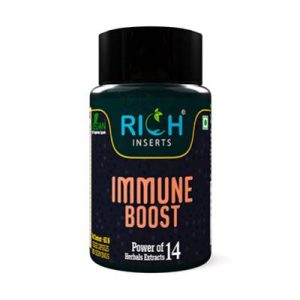A strong immune system is essential for maintaining overall health and protecting the body against infections and diseases. While a balanced diet, regular exercise, and adequate sleep are crucial for immune health, certain vitamins play a significant role in enhancing the immune response. In this article, we will explore the vitamins to boost the immune system and how they contribute to your body’s defense mechanisms.
1. Vitamin C
Vitamin C is one of the most well-known vitamins to boost immune system function. It acts as an antioxidant, protecting cells from damage caused by free radicals. Additionally, vitamin C stimulates the production of white blood cells, which are vital for fighting infections. Citrus fruits, strawberries, bell peppers, and broccoli are excellent sources of vitamin C.
Recommended Daily Intake
- Adult men: 90 mg
- Adult women: 75 mg
2. Vitamin D
Vitamin D plays a crucial role in immune regulation. It enhances the pathogen-fighting effects of monocytes and macrophages—white blood cells that are important for the immune response. Vitamin D deficiency has been linked to increased susceptibility to infections. Sun exposure is the best source of vitamin D, but it can also be found in fatty fish, fortified dairy products, and supplements.
Recommended Daily Intake
- Adults: 600 to 800 IU (15 to 20 mcg)
3. Vitamin A
Vitamin A is essential for maintaining the integrity of mucosal surfaces, which serve as barriers against pathogens. It also supports the function of immune cells such as T cells and B cells. Foods rich in vitamin A include carrots, sweet potatoes, spinach, and liver.
Recommended Daily Intake
- Adult men: 900 mcg
- Adult women: 700 mcg
4. Vitamin E
Vitamin E is another powerful antioxidant that helps protect the body from oxidative stress and boosts immune function. It supports the production of immune cells and enhances their response to infections. Nuts, seeds, and green leafy vegetables are good sources of vitamin E.
Recommended Daily Intake
- Adults: 15 mg
5. B Vitamins
B vitamins, particularly B6, B9 (folate), and B12, are important for a healthy immune response. They help in the production and maturation of immune cells and play a role in the body’s energy metabolism. Sources of B vitamins include whole grains, legumes, eggs, and dairy products.
Recommended Daily Intake
- B6: 1.3 to 2.0 mg
- B9: 400 mcg
- B12: 2.4 mcg
Conclusion
Incorporating these vitamins into your diet can significantly contribute to boosting your immune system. While supplements are available, it’s best to obtain these vitamins from a balanced diet rich in fruits, vegetables, whole grains, and lean proteins. Remember that a healthy lifestyle, including regular physical activity, sufficient sleep, and stress management, is equally important for maintaining a robust immune system.
If you’re considering vitamin supplements, consult with a healthcare professional to ensure they’re appropriate for your individual needs. By prioritizing your nutrition and overall well-being, you can strengthen your immune system and improve your body’s ability to fend off illness.

